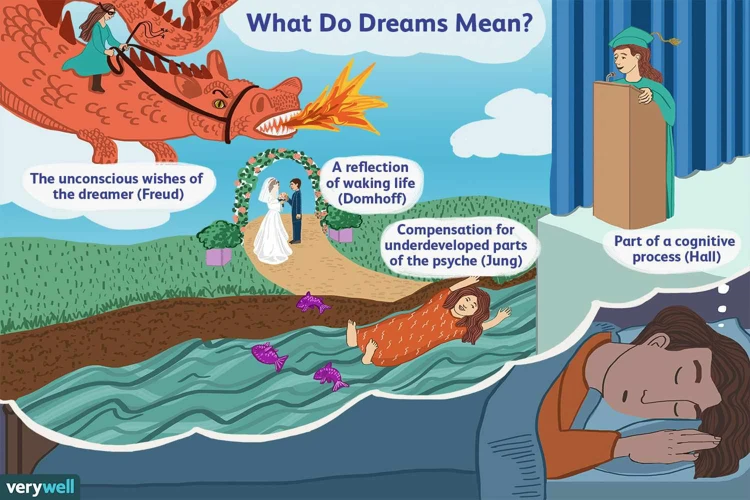Dreams have fascinated humans for centuries, with their enigmatic nature and ability to transport us to strange and surreal realms. However, it is not uncommon for certain medications and substances to have an impact on the content and quality of our dreams, including the dreaded nightmares. Our article delves into the intriguing world of dream content and explores the effects that medications and substances can have on our dreams. From common medications that influence our dreams to substances like alcohol and recreational drugs, we unravel the connections between these external influences and the content that unfolds during sleep. We offer insights into managing nightmares and dream disturbances, providing alternative approaches to minimize their occurrence. So, come along on this captivating journey as we unravel the intricate relationship between medications, substances, and dream content.
Understanding Dream Content

The content of our dreams is often a perplexing mix of familiar and unfamiliar elements, creating a vivid and sometimes bizarre experience. Dreams can be influenced by our daily experiences, emotions, memories, and even our subconscious mind. They can range from simple and mundane scenarios to elaborate and fantastical narratives. Dreams can incorporate elements from our past, present, and future, and they often reflect our deepest desires, fears, and unresolved issues.
Symbolism plays a significant role in dream content, as our minds often express abstract thoughts and emotions through symbolic representations. These symbols can vary from person to person but may include common themes such as flying, falling, or being chased. Analyzing the symbolism in dreams can offer valuable insights into our inner thoughts and feelings.
Another intriguing aspect of dream content is the emotional intensity that dreams can evoke. Dreams have the power to elicit intense emotions such as fear, sadness, joy, or even excitement, often amplifying these emotions beyond what we might experience in waking life.
It is important to note that dreams are highly subjective, and their interpretation can vary greatly from person to person. While some individuals may have recurring dreams or similar themes, each person’s dream content is unique and influenced by their own experiences, beliefs, and subconscious mind.
Effects of Medications on Dreams

Medications have the potential to influence the content and quality of our dreams. Common medications such as antidepressants, antipsychotics, and beta-blockers can have various effects on dream content. Some medications may intensify dreams, leading to more vivid and memorable experiences. Others may alter the emotional tone of dreams, making them more pleasant or disturbing. Additionally, certain medications can increase or decrease dream recall, affecting how much of our dreams we remember upon waking. It is important to note that the effects of medications on dreams can vary significantly from person to person, depending on factors such as dosage and individual sensitivity. If you are experiencing nightmares or other dream disturbances as a result of medication, it is crucial to communicate with your healthcare provider to explore potential adjustments or alternative treatments.
1. Common Medications and Their Influence
- Antidepressants: Antidepressant medications, such as selective serotonin reuptake inhibitors (SSRIs), are commonly prescribed to treat depression and anxiety. These medications can affect dream content by altering the neurotransmitters in the brain. While SSRIs may reduce the frequency of nightmares in some individuals, they can also cause vivid and unusual dreams as a side effect.
- Antipsychotics: Antipsychotic medications are often used to manage conditions like schizophrenia and bipolar disorder. These medications can influence dream content by modulating dopamine receptors in the brain. Some individuals may experience unusual dreams or nightmares as a result of antipsychotic use.
- Beta-Blockers: Beta-blockers are commonly prescribed to manage conditions such as high blood pressure and heart rhythm disorders. These medications work by blocking the effects of adrenaline on the body. While beta-blockers are not known to directly affect dream content, they can potentially reduce the emotional intensity of dreams, leading to less vivid and memorable dream experiences.
- Cholinesterase inhibitors: Cholinesterase inhibitors, used to treat Alzheimer’s disease and other forms of dementia, can sometimes lead to vivid dreams or nightmares as a side effect. The exact mechanisms by which these medications affect dreams are not fully understood, but they are believed to alter levels of acetylcholine in the brain, which can impact dream content.
- Nicotine replacement therapy: Nicotine replacement therapies, such as nicotine patches or gums, are often used to help individuals quit smoking. While these therapies can affect sleep patterns, they do not typically have a significant impact on dream content.
2. Medications That May Cause Nightmares
Some medications have been found to potentially cause nightmares as a side effect. While not everyone will experience this effect, it is important to be aware of the possibilities. Here are some medications that may have an impact on dream content:
- Antidepressants: Certain antidepressant medications, such as selective serotonin reuptake inhibitors (SSRIs), tricyclic antidepressants (TCAs), and monoamine oxidase inhibitors (MAOIs), have been associated with vivid and intense dreams, including nightmares. It is believed that these medications can alter neurotransmitter levels in the brain, affecting the content and intensity of dreams.
- Antipsychotics: Some antipsychotic medications, like olanzapine and risperidone, have also been linked to dream disturbances, including nightmares. These medications work by modulating dopamine levels in the brain, which can potentially influence dream content.
- Beta-blockers: Beta-blockers, commonly prescribed for conditions such as hypertension and anxiety, have been known to affect dream content. While the exact mechanisms are not fully understood, it is believed that beta-blockers can disrupt the normal sleep cycle, leading to more frequent awakenings during REM sleep, which is when dreaming occurs.
- Nicotine Replacement Therapy (NRT) products: Nicotine replacement therapy, used to aid in smoking cessation, has also been associated with changes in dream content. Some individuals using NRT products have reported experiencing vivid and unusual dreams, including nightmares.
If you are taking any of these medications and experiencing disturbing or frequent nightmares, it is recommended to consult with a healthcare provider to evaluate potential alternatives or adjust the dosage. Understanding the potential impact of these medications on dream content can help individuals make informed decisions about their healthcare and manage any distressing dream experiences.
3. How Medication Interactions Affect Dreams
Medication interactions can have a significant impact on our dreams, altering their content and intensity. When we take multiple medications simultaneously, there is a potential for these medications to interact and produce unexpected effects on our sleep and dream cycles.
One common way medication interactions affect dreams is by influencing sleep architecture. Sleep architecture refers to the different stages of sleep, including rapid eye movement (REM) sleep, which is the stage where most dreaming occurs. Certain medications can disrupt the natural sleep cycle, causing changes in the duration and timing of REM sleep. This disruption can lead to alterations in dream content, intensity, or even a decrease in dream recall.
Another way medication interactions impact dreams is through the modulation of neurotransmitters in the brain. Many medications work by affecting various neurotransmitters, such as serotonin, dopamine, or norepinephrine. These neurotransmitters play a crucial role in regulating mood, emotions, and sleep. When these neurotransmitters are altered by medications, it can influence the emotional tone or themes present in dreams. For example, medications that increase serotonin levels may lead to more vivid, positive dreams, while medications that decrease serotonin levels can result in more negative, distressing dreams.
Additionally, certain medications can cause side effects that directly influence dream content. For example, medications used to manage anxiety or depression may sometimes cause vivid or strange dreams as a side effect. Similarly, medications that affect the central nervous system may disrupt normal sleep patterns and contribute to unusual dream experiences.
It is crucial to communicate with healthcare providers about any notable changes in dream content or quality when starting or adjusting medications. Healthcare providers can offer valuable insights into the potential effects of medications on dreams and may be able to adjust dosages or recommend alternative medications if necessary. By proactively discussing medications and their potential impact on dreams, individuals can work towards a better understanding and management of their dream experiences.
Effects of Substances on Dreams

Substances can have a profound impact on our dreams, altering the content and intensity of our nocturnal experiences. Alcohol is known to influence dreams, often causing more vivid and emotionally charged episodes. While alcohol can initially induce a sense of relaxation and sleepiness, it can disrupt the REM (Rapid Eye Movement) sleep, the stage of sleep where dreaming occurs, leading to fragmented and disjointed dream experiences. Similarly, various recreational drugs can also affect dream content. Substances such as marijuana, hallucinogens like LSD or psilocybin mushrooms, and even certain prescription drugs like benzodiazepines can modify dream content, often resulting in more vivid and bizarre dreams. Another category of substances that can impact dreams are stimulants, such as caffeine or amphetamines. These substances can increase brain activity and disrupt sleep patterns, potentially leading to more intense dreams accompanied by restlessness and heightened arousal.
1. Impact of Alcohol and Dreams
Alcohol consumption can have a significant impact on our dreams and sleep patterns. While alcohol is known to initially promote drowsiness and help individuals fall asleep faster, its effects on dream content can be quite complex. Alcohol is a depressant that can alter the neurotransmitters in our brain, leading to changes in the structure and organization of our sleep cycle.
During the initial stages of sleep, when rapid eye movement (REM) sleep is more prevalent, alcohol tends to supress REM sleep. This suppression can result in a reduction of dreams or even the absence of dream recall altogether. However, as the alcohol metabolizes and its effects wear off, there is often a rebound effect, leading to REM rebound – an increase in REM sleep and subsequent dream activity.
It is common for individuals who consume alcohol to experience vivid and emotionally charged dreams during their REM rebound period. These dreams can sometimes be unsettling and lead to nightmares. The exact reasons for this are still not fully understood, but it is believed that the disruption in the sleep cycle, as well as the influence of alcohol on neurotransmitters and brain activity, contribute to the occurrence of nightmares.
Alcohol can also worsen sleep quality overall. It can disrupt the deeper stages of sleep and increase the number of awakenings during the night, thereby affecting the overall restorative nature of sleep. This disruption in sleep continuity can further impact dream content and may increase the likelihood of experiencing nightmares.
Individuals who have a history of anxiety disorders may be particularly susceptible to the effects of alcohol on dream content. Alcohol can exacerbate anxiety symptoms and trigger anxiety-related nightmares. To understand more about the link between nightmares and anxiety disorders, you can read our article on nightmares and anxiety disorders.
2. Influence of Recreational Drugs on Dreaming
Recreational drugs have been known to significantly impact dreaming experiences. While the precise effects may vary depending on the specific drug and individual factors, there are some general patterns that have been observed. One common impact is the alteration of dream recall. Some drugs, such as marijuana, have been reported to suppress dream recall, making it difficult for individuals to remember their dreams upon waking. On the other hand, substances like psychedelics, including LSD and psilocybin mushrooms, have been associated with increased dream vividness and intensity, often leading to highly immersive and surreal dreamscapes. These hallucinogenic substances can create a heightened dream state characterized by vibrant colors, intricate patterns, and a sense of altered perception. However, it is worth noting that the content of these drug-induced dreams can be highly unpredictable and may not always be positive or pleasant. Additionally, the use of recreational drugs can disrupt the normal sleep cycle, potentially leading to insomnia or fragmented sleep, which can further impact dream quality and content. It is crucial to approach the use of recreational drugs with caution and be aware of the potential effects they can have on dreaming experiences. If you are interested in exploring the topic of how dreams can reflect unresolved issues or traumas, you can find more information by reading our article on nightmares and unresolved issues.
3. Stimulants and Their Connection to Nightmares
Stimulants, such as caffeine and amphetamines, have a significant connection to nightmares and dream disturbances. These substances can disrupt the normal sleep cycle and affect the content of our dreams. Stimulants are known to increase brain activity and alertness, making it harder for the mind to enter a deep and restful sleep state. As a result, the individual may experience fragmented and disrupted dreaming, which can lead to nightmares.
The stimulating effects of these substances can create a hyperaroused state within the body, heightening anxiety and increasing the likelihood of experiencing vivid and intense dreams. Research has shown that caffeine, in particular, can trigger nightmares and promote the recall of negative or distressing dream content. Additionally, the withdrawal effects of stimulants, when attempting to quit or reduce consumption, can also lead to nightmares as the brain adjusts to the absence of the substance.
Stimulants can interfere with the production and release of neurotransmitters in the brain, such as serotonin, which plays a crucial role in regulating mood and promoting a sense of well-being. Imbalances in serotonin levels have been linked to an increased risk of nightmares and sleep disturbances.
To minimize the connection between stimulants and nightmares, it is advisable to limit consumption of caffeinated beverages and other stimulating substances, especially in the hours leading up to bedtime. This can help promote a more restful sleep and reduce the likelihood of experiencing nightmares. If you find that stimulants are consistently causing nightmares or disrupting your sleep, it may be beneficial to speak with a healthcare provider to explore alternative approaches or address any underlying issues contributing to these disturbances.
Managing Nightmares and Dream Disturbances
Nightmares and dream disturbances can be unsettling and affect our overall well-being. Fortunately, there are strategies and approaches that can help manage and minimize the occurrence of these unsettling dreams. One important step is to communicate with healthcare providers, such as doctors or therapists, about your nightmares. They can provide guidance, evaluate any underlying conditions, and suggest appropriate treatments or adjustments to medications if necessary. Additionally, exploring alternative approaches can be beneficial. Techniques such as relaxation exercises, mindfulness meditation, and cognitive behavioral therapy have shown promise in reducing nightmares. It may also be helpful to establish a regular sleep routine, create a comforting sleep environment, and address any unresolved emotional or psychological issues through therapy or self-reflection. By taking proactive steps and seeking support, individuals can find relief from nightmares and attain a more peaceful and restorative sleep.
1. Communicating with Healthcare Providers
- Open and honest communication: When experiencing nightmares or dream disturbances as a result of medications or substances, it is crucial to communicate openly and honestly with healthcare providers. Share your concerns, describe the content and intensity of your dreams, and explain how these disturbances are affecting your sleep and overall well-being.
- Describe any changes in medication: If you suspect that your dreams are being influenced by a particular medication, inform your healthcare provider about any recent changes in your medication regimen. This includes starting a new medication, adjusting the dosage, or discontinuing any medication.
- Ask about alternative medications: If your nightmares or dream disturbances are significantly impacting your quality of life, discuss with your healthcare provider the possibility of switching to an alternative medication that may have fewer effects on your dreams. They can evaluate the risks and benefits and work with you to find a suitable solution.
- Discuss potential underlying causes: Nightmares and dream disturbances can sometimes be a reflection of underlying psychological or emotional issues. If you suspect that there may be unresolved issues contributing to your dreams, discuss this with your healthcare provider. They can help you explore any underlying factors and recommend appropriate interventions or therapy if necessary.
2. Alternative Approaches to Minimize Nightmares
For those who experience frequent nightmares and wish to minimize their occurrence, there are several alternative approaches that can be explored. These approaches focus on addressing underlying causes and promoting better sleep and relaxation.
1. Therapy and Counseling: Seeking professional help from a therapist or counselor who specializes in dream therapy or nightmare treatment can be beneficial. Through various therapeutic techniques, such as cognitive-behavioral therapy or exposure therapy, individuals can learn to better understand and manage their nightmares.
2. Stress Reduction Techniques: Stress and anxiety are often associated with increased frequency and intensity of nightmares. Practicing stress reduction techniques, such as mindfulness meditation, deep breathing exercises, or yoga, can help regulate stress levels and promote better sleep.
3. Sleep Hygiene: Maintaining good sleep hygiene is essential for minimizing nightmares. This includes establishing a regular sleep schedule, creating a relaxing bedtime routine, avoiding stimulating activities or screens before bed, and ensuring a comfortable sleep environment.
4. Imagery Rehearsal Therapy: Imagery rehearsal therapy involves rewriting and rehearsing a nightmare scenario to create a more positive outcome. By consciously altering the content of the dream during waking hours, individuals can potentially influence the content of their nightmares during sleep.
5. Medication Adjustments: If nightmares are related to specific medications, consulting with a healthcare provider to explore alternative medications or adjust dosages may be beneficial.
6. Support Groups: Participating in support groups or online forums with others who experience nightmares can provide a sense of community and understanding. Sharing experiences and learning coping strategies from others can be valuable in managing nightmares.
Remember, it is essential to consult with a healthcare professional or therapist before implementing any alternative approaches to ensure they are appropriate and safe for your specific situation.
Conclusion
In conclusion, understanding the content of our dreams can be a fascinating and insightful journey into the mysteries of the human mind. Dreams provide a window into our subconscious thoughts, emotions and desires. They are influenced by various factors, including daily experiences, emotions, memories, and even medications and substances. Medications can influence the content of our dreams, either by enhancing dream recall or by causing disruptions in dream patterns. Substances such as alcohol and recreational drugs can also impact dream content, altering the intensity and vividness of our dreams. Nightmares, in particular, can be a distressing experience, but there are strategies and alternative approaches to manage and minimize their occurrence. By communicating with healthcare providers and exploring alternative methods, individuals can gain control over their dream disturbances and promote more restful sleep. By unraveling the intricacies of dream content and its influences, we can develop a deeper understanding of ourselves and the complex workings of the human mind.
Frequently Asked Questions
1. Can dreams predict the future?
Dreams can sometimes contain elements that seem to foreshadow future events, but it is important to approach such experiences with skepticism. Dreams are generally interpreted as reflections of our thoughts, emotions, and experiences rather than prophetic visions.
2. Why do we forget our dreams?
Forgetting dreams is a common phenomenon due to the nature of our sleep cycles. Dreams occur during the REM (rapid eye movement) stage of sleep, which is associated with heightened brain activity. When we wake up, our brains transition to a different state, making it difficult to retain dream memories.
3. Can nightmares be a symptom of anxiety disorders?
Yes, nightmares can be associated with anxiety disorders, such as post-traumatic stress disorder (PTSD) or generalized anxiety disorder (GAD). These nightmares often reflect the fears and worries related to the underlying anxiety condition.
4. How can unresolved issues manifest in nightmares?
Unresolved issues can surface in nightmares as symbolic representations of the emotions or conflicts we have not yet resolved in our waking life. These dreams may continue until we address or find resolution for those underlying issues.
5. Can medications influence the theme of our dreams?
Yes, certain medications can impact dream content, potentially altering the theme or emotional intensity of our dreams. This effect varies depending on the specific medication and its influence on brain chemistry.
6. Is it possible to control or manipulate our dreams?
Yes, lucid dreaming techniques can enable individuals to become aware that they are dreaming and even exert some control over the dream narrative or environment. However, achieving lucid dreaming can take practice and patience.
7. How do emotions in dreams differ from those in waking life?
Emotions in dreams can often be more intense than those experienced in waking life. This heightened emotional state may be due to the brain’s increased activity during REM sleep and the absence of external stimuli that can regulate our emotions while awake.
8. Can substances like alcohol affect dream content?
Yes, alcohol can influence dream content by disrupting the normal sleep cycle and causing fragmented sleep. This can lead to more vivid and intense dreams, as well as an increased likelihood of experiencing nightmares.
9. What role does dream interpretation play in understanding dream content?
Dream interpretation can be a helpful tool for gaining insights into our subconscious mind and uncovering hidden meanings within our dreams. However, it is subjective and should be approached with an open mind, considering personal experiences and individual symbolism.
10. How can chronic sleep deprivation affect dream content?
Chronic sleep deprivation can disrupt the natural sleep cycle, which may impact dream content. Dreams may become more fragmented, less vivid, or even more prone to nightmares. Ensuring adequate sleep is essential for maintaining healthy dream patterns.








